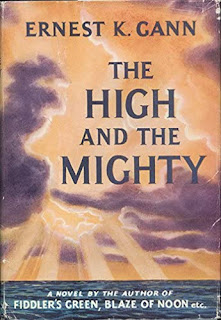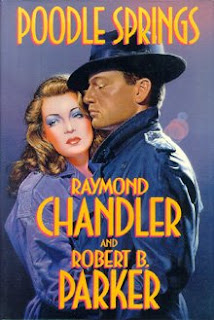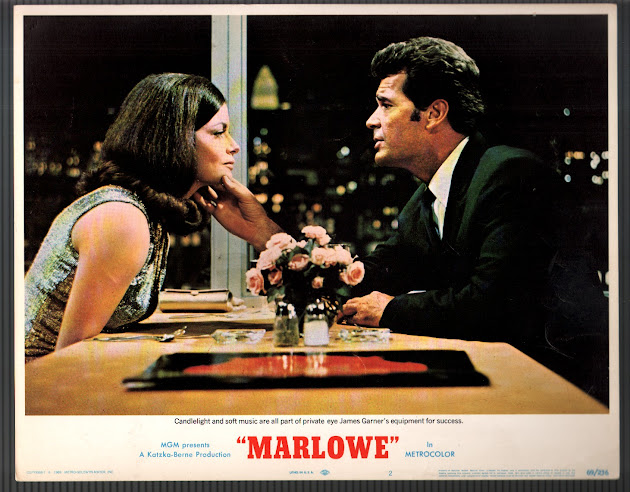St. Valentine is the patron saint of affianced couples, beekeepers, epilepsy, fainting,
greetings, happy marriages, lovers, plague, travelers, and young people. Since this blog appears on February 14th, let us focus on the part of that resume dealing with love and marriage.
A bit of background. According to a medieval legend, a Roman priest named Valentinus was arrested during the reign of Emperor Claudius Gothicus. Valentinus landed in the custody of Asterius, a nobleman. Valentinus used his time in this imperial hoosgow to preach about the salvation of pagans. Asterius, the legend says, challenged the priest. If Valentinus could heal Asterius's blind daughter, the nobleman would convert.
The priest gently laid his hands on the girl's eyes. He began to pray and chant. When he drew back his hands, her sight returned. Asterius, true to his word, adopted Christianity for his entire household. The emperor, however, was not entertained by the story. He ordered everyone executed. Valentinus was beheaded on February 14th.
Maybe he carried love letters between the cells. Maybe he married Roman soldiers to their girlfriends. No one is sure. History isn't clear that this is the right Valentine.
A second possible Valentinus was the bishop of Terni in Umbria, Italy. He, too, sought a conversion, healed a child, and was beheaded by Gothicus for his troubles.
There was a third possible Valentinus. He died in Africa, and next to nothing is known of him except his name and date of death, February 14th.
The first Valentine's Day mystery. Little in the aforementioned has anything to do with romantic love. That association begins later, likely with Geoffrey Chaucer. But to be fair, there is little in the Valentinus story having to do with beekeepers. That also is an English addition associated with the promise of Spring.
In German, the saint's name is pronounced Fallentin. The similarity to the word "fallen" likely links him to epilepsy and the plague. These diseases, incurable in the medieval period, both required saintly intervention.
Crime fiction has its own fallen. And there is that element of mystery surrounding the saint's origin. These connections will serve as my jumping-off point. While many crime solvers involve romantic entanglements, let us narrow the field in honor of the holiday. Who makes the best crime-solving couples? Possible spoiler alerts run throughout the following list.
1. Sister Fidelma and Brother Eadulf (Peter Tremayne)
"...[W]without your advice, your ability to analyse, I would not have succeeded in many of the investigations we have undertaken...you will forever be my soul-mate, my anam chara, and if you go my soul will die."
(Fidelma to Eadulf in The Chalice of Blood)
These stories, set in the 7th Century, contain criminal investigation, analysis, Catholicism, soul mates, and drops of Irish. This couple seemed the perfect place to begin in honor of the religious roots behind St. Valentine's Day. Eadulf, from the Roman tradition of the early church, is matched with Fidelma, a dalaigh and nun from the Irish tradition. Their differing perspectives on religion, a central component of their shared lives, allows for debate. Their alternative viewpoints offer distinct ways to sort out possible bits of evidence. Both Fidelma and Eadulf aid in the solution of the crime. They are a pair.
2. Lord Peter Wimsey and Harriet Vane (Dorothy Sayers)
"If anyone marries you, it will be for the pleasure of hearing you talk piffle."
(Vane to Wimsey in Strong Poison)
Harriet Vane, a mystery writer, meets Lord Peter, a detective, when she is on trial for murdering her lover. The lover was poisoned, the same method Vane had been researching for her next book. Wimsey helps her get acquitted by proving who really committed the murder. The couple moves from courtship to marriage, solving murders along the way.
3. Albert Campion and Lady Amanda Fitton (Margery Allingham)
Fitton: "So you've decided to come clean at last."
Campion: "Metaphorically speaking."
(Fitton to Campion in Sweet Danger)
Red-haired Amanda brings passion and expertise to complement the character of Albert Campion. She provides mechanical skills as an aircraft engineer and a spark to Campion, a man other characters describe as "bland". Neither superhero nor purely rational thinking machine, Campion relies upon her technical abilities to aid in his work unraveling knots.
4. Mary Russell and Sherlock Holmes (Laurie King)
"You cannot help being a female, and I should be something of a fool were I to discount your talents merely because of their housing."
(Holmes in The Beekeeper's Apprentice)
Besides the beekeeping, which gives this book an extra check in the St. Valentine box, the first book paired a fifteen-year-old Mary Russell with a mid-fifties Sherlock Holmes. A mentor-to-mentee relationship deepens across subsequent books. Eventually, they marry. Her quirks and intellect proved Holmes equal. King's Mary Russell stories give Holmes a life-blooded passion.
5. Nick and Nora Charles (Dashiell Hammett)
"Listen, darling, tomorrow I'll buy you a whole lot of detective stories, but don't worry your pretty little head over mysteries tonight."
(Nick to Nora in The Thin Man)
I'll confess that I remember Nick and Nora far better from the Thin Man movies than the Dashiell Hammett story. My Nick is always William Powell thin and owns a wire-haired terrier. This couple is distinct from the others. While the previous pairs generally offered a partnership of relative equals, Nick does the detecting and is cheered on or pushed and prodded forward by his rich, thrill-seeking wife. Despite the detection imbalance, Nora regularly proves to have more brains and metal than haute couture appearances suggest.
William Powell and Myrna Loy shaped the trope of the romantically involved, crime-detecting duo. Even if the couple isn't a traditional partnership, they must be on this list. To see the murder solved is not why we watch, but rather to enjoy the boozy, wise-cracking interplay between Nick and Nora.
Do you have other crime-solving Valentine's couples to propose? Tommy Beresford and Tuppence Cowley? Or a more contemporary duo? I look forward to reading your thoughts.
Until next time.


.jpg)




.jpg)
.jpg)



























